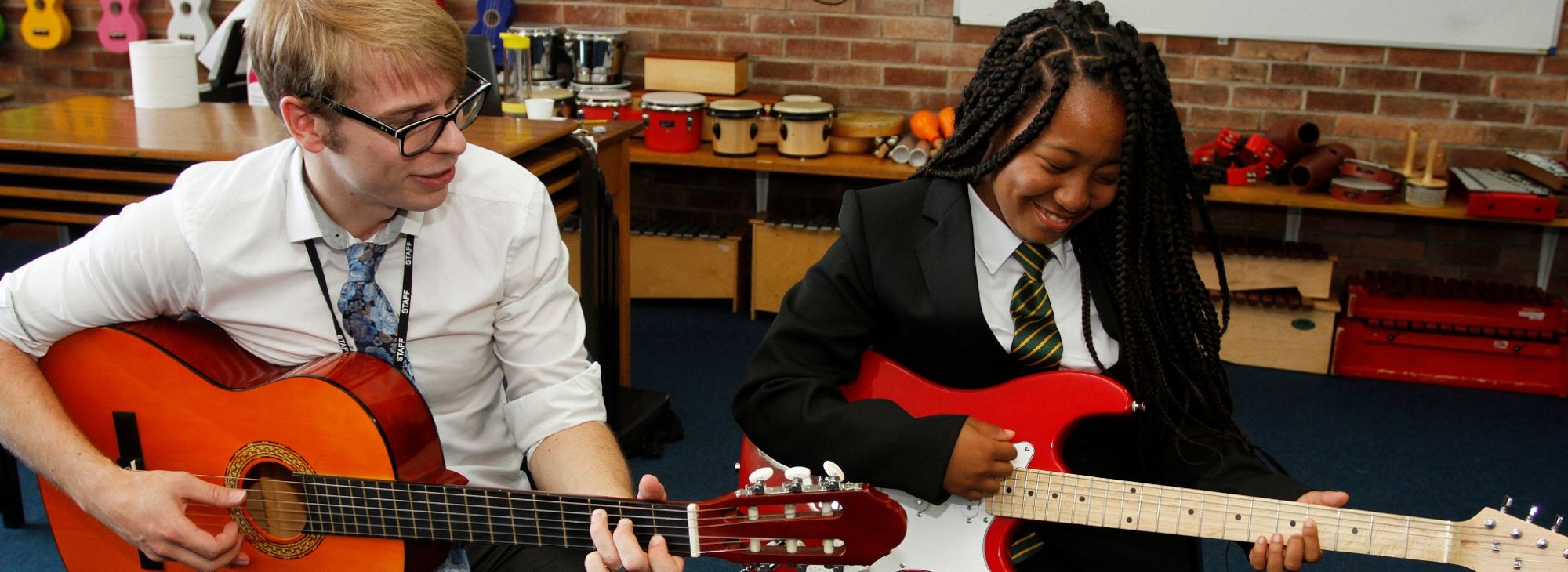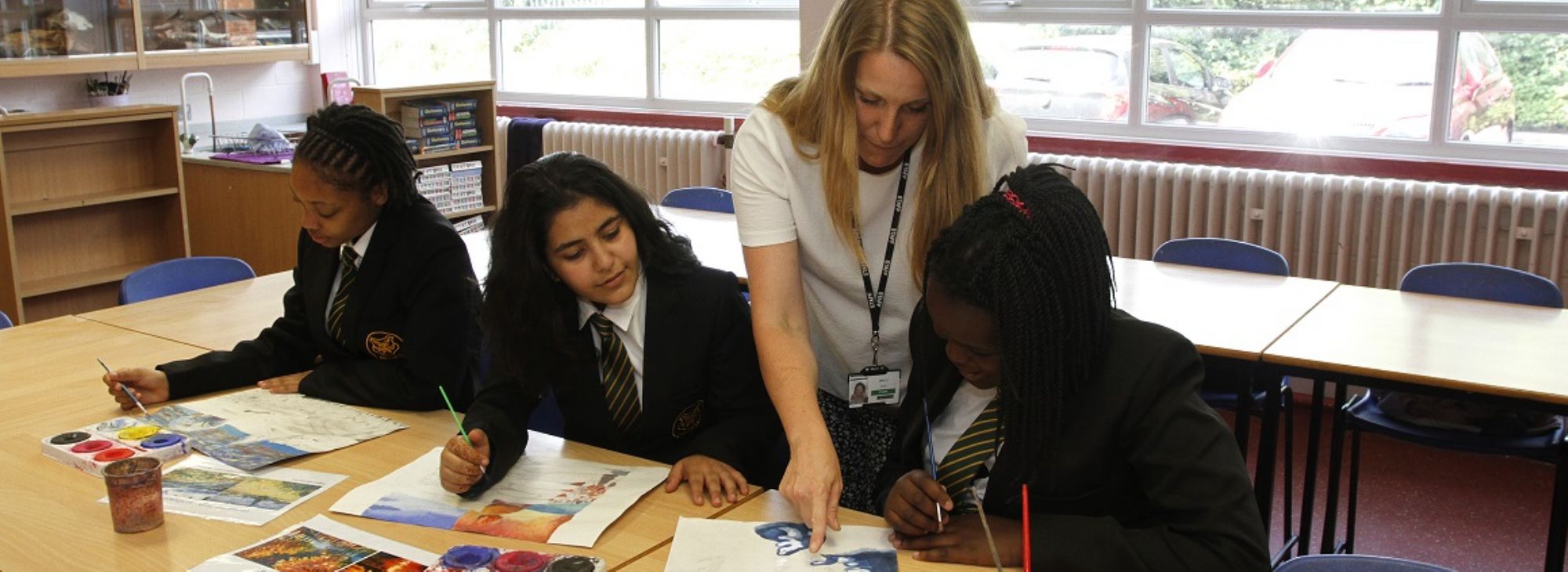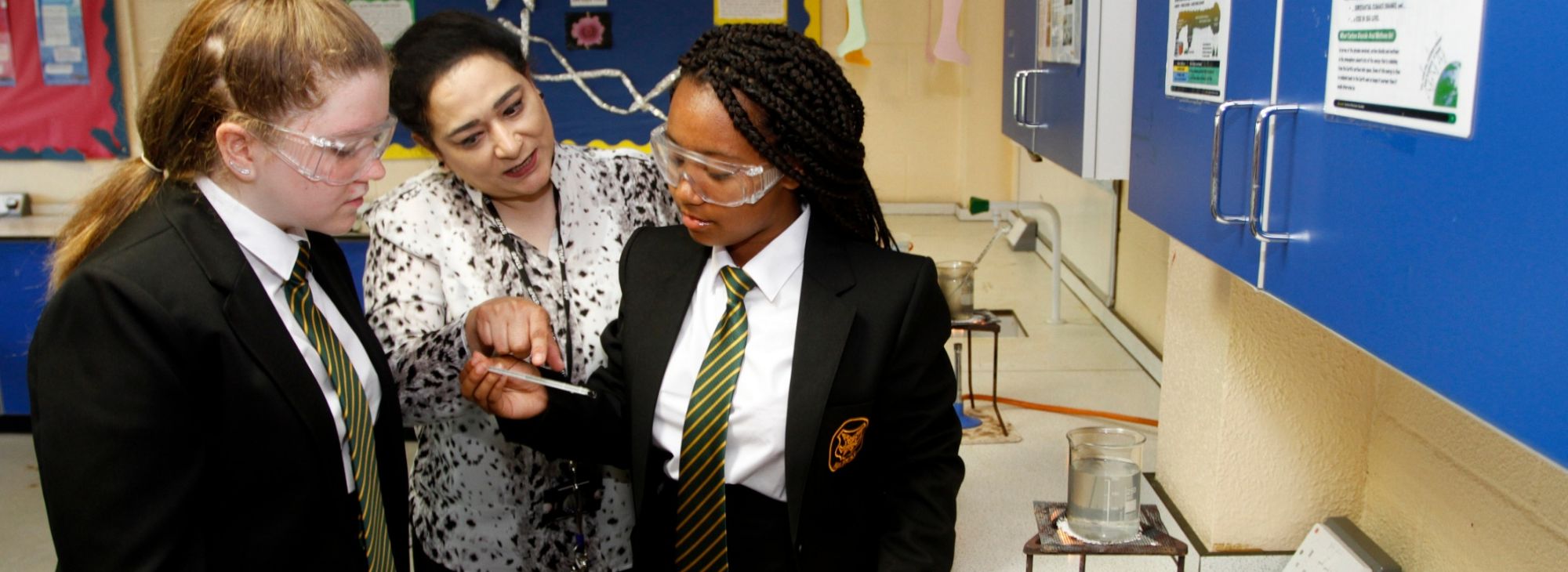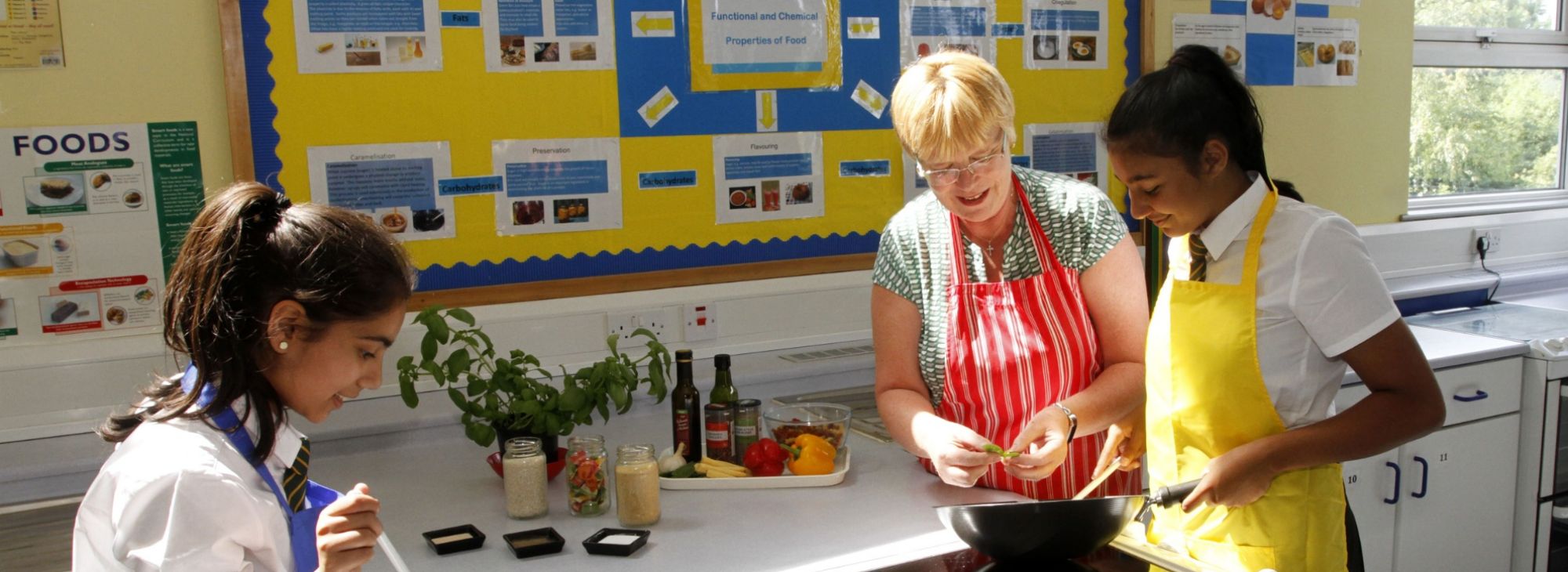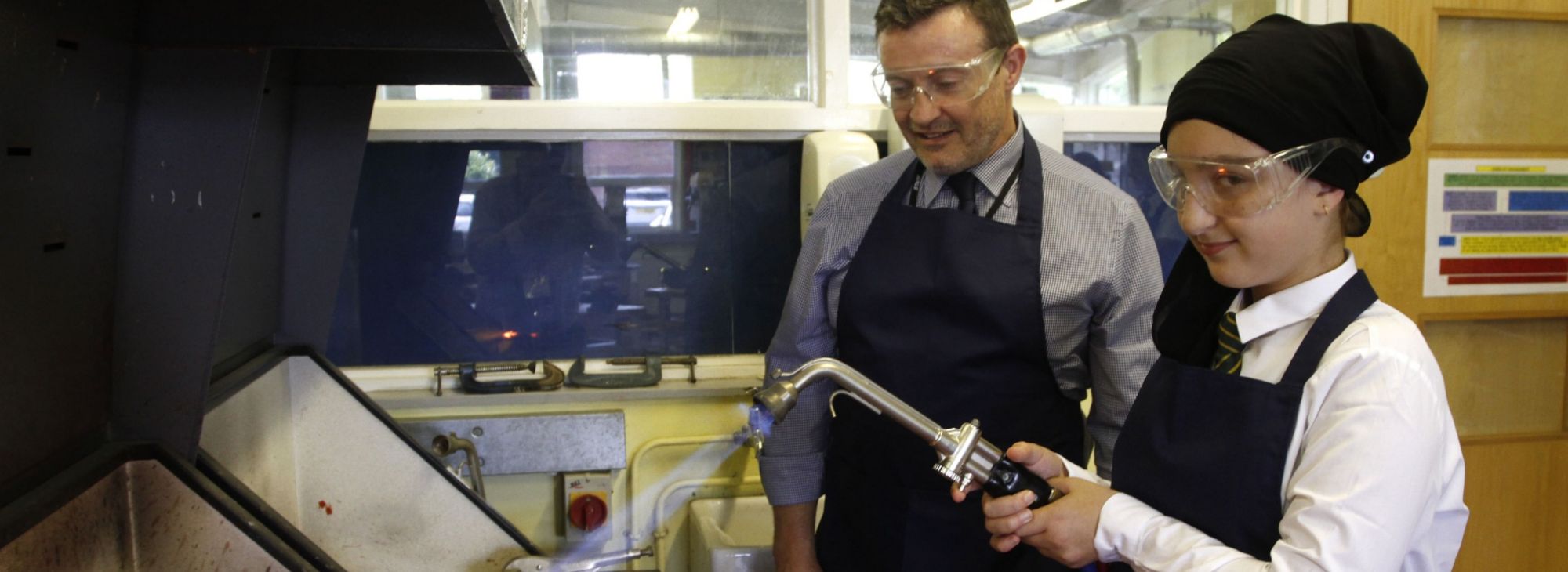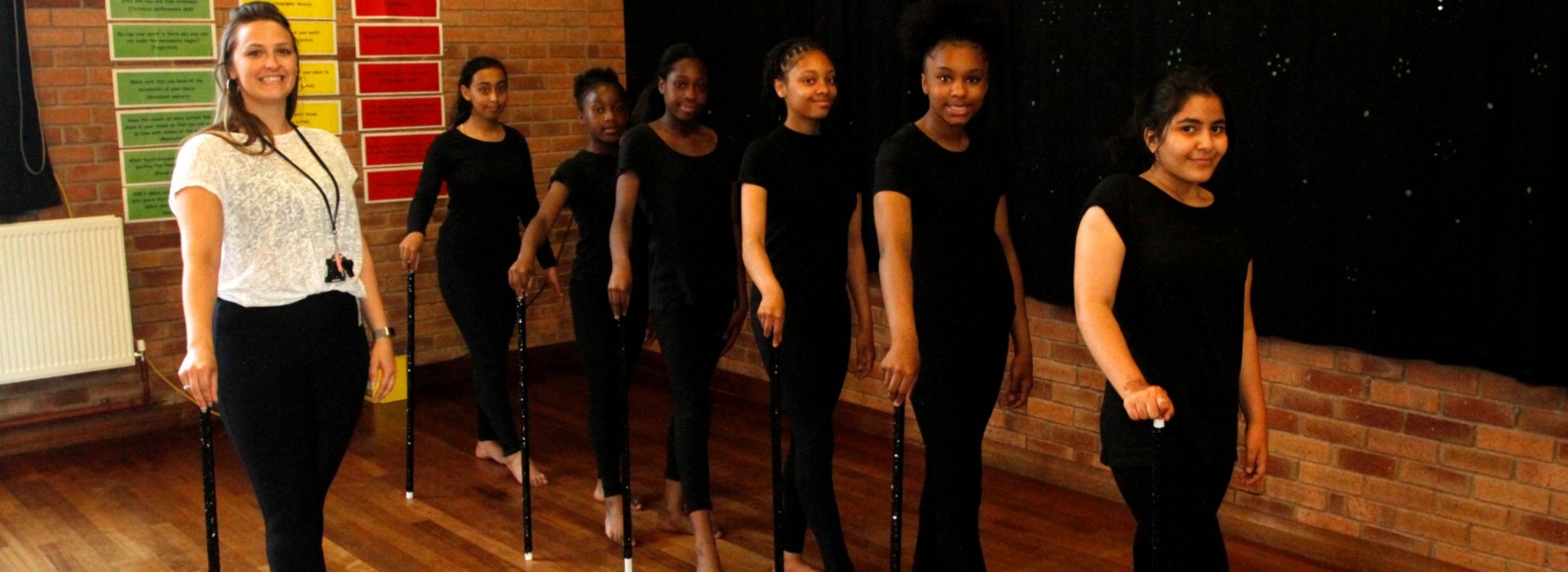Dance
KEY STAGE 3 CURRICULUM
The Dance curriculum has been designed to develop transferable and subject specific knowledge to broaden student’s awareness of the importance of the Performing Arts. Students learn how to create, perform, respond and evaluate Dance. Students will learn subject specific terminology and be able to use this effectively when communicating verbally, through written tasks and practically in lessons.
We aim to broaden student’s cultural awareness by sharing a variety of dance and music genres, watching professional performances, visiting the theatre and discussing life as a professional performer.
We want students to develop a professional attitude to how they approach performances, displaying confidence when performing in front of others. Another way we will help students to develop as performers is by working in different sized groups and with different people in the class, again developing transferable knowledge that will benefit the learner beyond their school life.
Year 7
|
Unit 1: Introduction to Dance By the end of the first module, students will have developed the knowledge they need to apply appropriate dance skills in preparation for their first performance. Whilst understanding and applying the 5 basic dance actions is the primary objective of this module, students should also be able to understand how the components of dance, (actions, space, dynamics and relationships) help create an eye catching performance. Students will have the knowledge of how to warm their bodies up safely, identifying the 3 sections of a dance warm up. Finally, students will be able to reflect on their own performance work and comment on the work of others through applying their knowledge of Dance terminology. • 5 basic dance actions • Communication • Rehearsal • Warm up • Collaboration |
|
Unit 2: Popular Dance Styles of the 1900's Students will watch a piece of professional dance and learn some of the basic contextual information to gain understanding of the artistic intentions. In Unit 1 students were able to perform the 5 basic dance actions, warm their bodies up in preparation for a dance lesson and apply basic performance skills. To develop students knowledge of dance and performance further we want students to be able to identify variations of the 5 basic dance actions and lead their own dance warm up. Whilst learning repertoire, the students will be expected to apply secure movement memory and musicality. Students will also apply a range of dynamics and be familiar with the contextual information of the dance they are studying. Throughout the module students will provide their peers with verbal feedback, identifying skills that are demonstrated competently and those that need developing further. They will also reflect on their own development and complete an end of unit skills audit. • Movement Memory • Performance Skills • Collaboration • Dance appreciation |
Year 8
|
Unit 1: Street Dance In this unit of work, students will be looking at the dance style ‘Street Dance’. Students will become a member of a street dance “company” and work together with their peers to create their own group dance in this style. Students will learn the 5 street dance actions; popping, locking, breaking, waving and isolation, and use these to help them choreograph a dance in a street dance style. When choreographing students are expected to apply prior knowledge of the components of dance to enable them to create a dance that is eye-catching and unique. Students are reminded to apply previous knowledge of health and safety in the dance studio and arrive to all lessons wearing appropriate clothing and footwear. At this stage in the dance learner journey, students are expected to be able to prepare their bodies for a dance lesson independently. • Time management • Problem Solving • Team work • Organisation |
|
Students will watch a piece of professional dance and learn some basic contextual information to gain understanding of the artistic intentions and style. In the last unit students were able to choreograph a street dance applying stylistic qualities of that style. To develop students knowledge of dance and performance further, we want students to be able to identify the stylistic qualities of a new genre, Musical Theatre, and use this to create a dance that portrays these. Whilst learning repertoire, the students will be expected to apply secure movement memory. Students will also apply a range of performance skills and are expected to be familiar with the contextual information of the dance they are studying. Throughout the module students will provide their peers with verbal feedback, identifying dance skills that are demonstrated competently and those that need developing further. Students will also reflect on their own development and complete an end of unit skills audit. • Time management • Problem Solving • Team work • Confidence |
Year 9
|
Unit 1: Professional Dance Study In this unit of work, students will be gaining understanding of the knowledge a professional dancer needs in order to perform with good technique and discipline. To have good technique students will practically explore dance skills which are called ‘Performance Skills’. There are two types of performance skills, technical and expressive, and students are expected to be able to identify, define, practically explore, perform and understand both of these categories. Students will learn a series of technique exercises and at the end of this unit they will perform these to the teacher in small groups. Students are assessed on the application of performance skills and retrieval of the exercises learnt in lessons. • Co-ordination • Posture • Extension • Flexibility • Movement memory • Musicality |
|
Unit 2: Choreographing with a Stimulus In this unit of work, students will watch a professional piece of dance (“Come Alive” choreographed by Ashley Wallen) and learn contextual information to gain understanding of the artistic intentions and style. Students will learn a short section of the repertoire, which they will perform applying Musical Theatre knowledge and performance skill from year 8, unit 2 (Hairspray). Whilst learning repertoire, the students will be expected to apply secure movement memory. Students will also apply a wide range of performance skills learnt in year 9, unit 1 (Technique) and are expected to have a greater understanding of the importance of these as a professional dancer. • Facial Expressions • Movement Memory • Projection • Independence |
Key Stage 4 Curriculum
Dance - Pearson BTEC Level 1/2 Tech Award in Performing Arts
COURSE CONTACT: Mrs E Kirby and Mrs G Berlyn
Course Content
The Pearson BTEC Level 1/Level 2 Tech Award in Performing Arts is for learners who want to acquire sector-specific applied knowledge and skills through vocational contexts by studying professionals’ work and processes used, the skills and techniques used in different roles, and how to contribute to the creation of a performance in either a performance or non-performance role as part of their Key Stage 4 learning. The qualification enables learners to develop their sector-specific skills, such as refining work and applying skills for a performance using realistic vocational contexts, and personal skills, such as working with others, working to deadlines, and responding to feedback through a practical and skills-based approach to learning and assessment. The qualification recognises the value of learning skills, knowledge and vocational attributes to complement GCSEs. The qualification will broaden learners’ experience and understanding of the varied progression options available to them. Students will have the opportunity to develop knowledge and technical skills in the following areas:
• development of key skills that prove their aptitude in performing arts, such as reproducing repertoire and responding to stimuli
• processes that underpin effective ways of working in the performing arts, such as development of ideas, rehearsal and performance
• attitudes that are considered most important in the performing arts, including personal management and communication
• knowledge that underpins effective use of skills, processes and attitudes in the sector, such as roles, responsibilities, performance disciplines and styles
Assessment Details
Component 1: Internally assessed
Exploring the Performing Arts
Students will examine live and/or recorded performances in at least three different styles in order to develop their understanding of professional dance work with reference to influences, outcomes and purpose. Students will gain a practical appreciation of professional work by exploring existing performance material. They will learn how professionals may respond to or treat a particular theme or issue, how they use/interpret/modify a pre-existing style, and how they communicate ideas to their audience through stylistic qualities. Students will explore and participate in workshops and classes to develop their knowledge and understanding of the interrelationships between processes, techniques and approaches that contribute to performance repertoire.
• Organisation
• Communication
• Evaluation
• Musicality
• Co-ordination
• Movement memory
Component 2: Internally assessed
Developing Skills and Techniques in the Performing Arts
Students will work as performers and this requires the application of skills, techniques and practices that enables them to produce and interpret performance work. Students will communicate intentions to an audience through the dance. In this component, students will develop performance skills and techniques. Students will take part in workshops and classes where they will develop technical, practical and interpretative skills through the rehearsal and performance process. Students will work from existing performing arts repertoire, applying relevant skills and techniques to reproduce performance elements of the work. Throughout the development, students will review their own progress and consider how to make improvements.
• Research
• Appreciation
• Analysis
• Description
• Investigation
Component 3: Externally assessed
Responding to a Brief
In this component, students will have the opportunity to respond to a brief. They will be given a brief that outlines the performance requirements and asks students to consider a chosen target audience and to start the creative process by using the stimulus included in the brief. Working as part of a group, you will develop your ideas for a workshop performance and apply your skills and techniques to communicate your creative intentions to your audience. The group performance may involve some solo or small-group work or it may be an ensemble piece or a mix of all, helping students to build upon collaboration and communication skills. This unit of work will allow you to develop choreographic skills, understand the process of creating a performance and evaluate the success or areas of improve for future projects.
• Reflection
• Development
• Time management
• Communication
• Problem solving
• Performance
Why Study This Course?
Students who wish to explore a variety of dance styles, study professional works and gain a strong technical grounding with lots of opportunities to perform. This course builds underpinning knowledge of specific skills in Dance performance and Appreciation such as analysing and evaluating. Students can consider progression to Level 3 BTEC Dance offered within the Oaks Collegiate.
Students will gain many transferable skills such as communication skills, organisational skills, problem-solving skills and the ability to understand the creative process. Students who study Dance at Level 2 may be interested in careers in teaching, arts therapies, theatre production, sports science, physiotherapy and art and design.
Dance Reading List
PEPA Careers in the Curriculum Priorities
PEPA intent:
Career intent statement for PEPA:
1 – Identify and demonstrate different employability skills
2 – Develop an understanding of career based roles and responsibilities within our subjects
3 – To create a careers display advertising jobs within our subject
4 – To engage pupils with professionals in our industry

